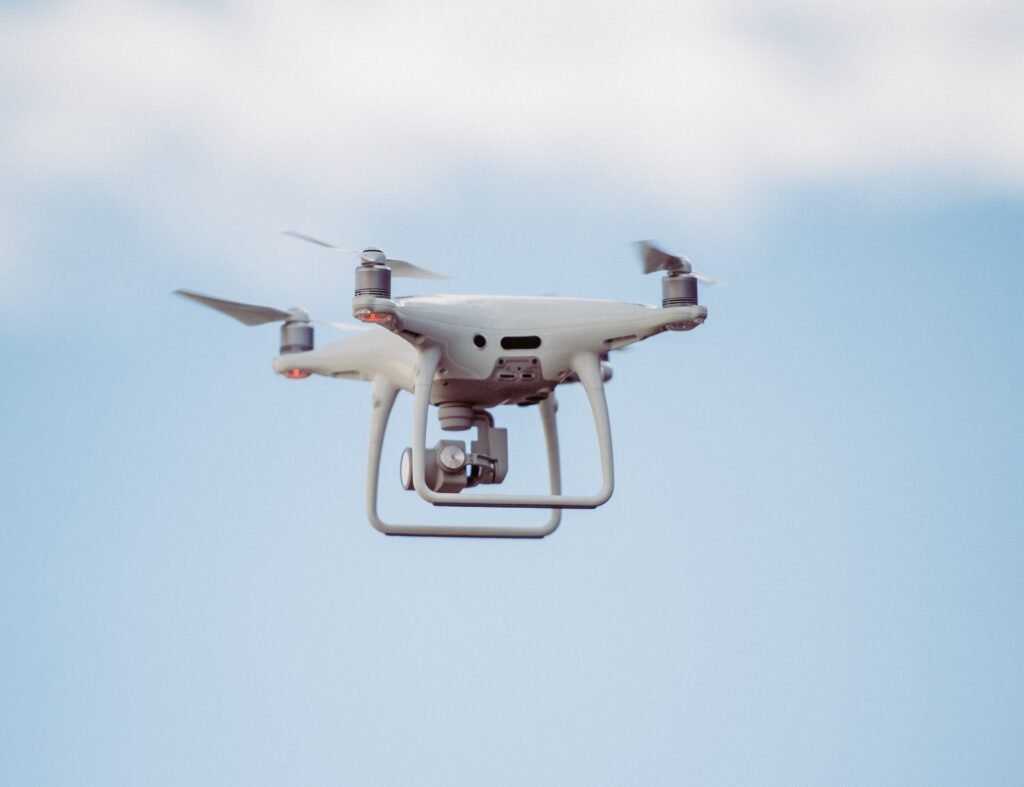Do you ever wonder who first came up with the phrase “artificial intelligence”? Well, in this article, we’ll explore the origins of this term and uncover the brilliant mind behind its creation. From its humble beginnings to its modern-day significance, understanding the origins of artificial intelligence is key to appreciating its impact and potential. So, sit back and join us on this fascinating journey to discover the visionary thinker who coined the term artificial intelligence.

1. Origins of Artificial Intelligence
1.1 Introduction to Artificial Intelligence
Artificial Intelligence (AI), as a field, seeks to develop computer systems that can perform tasks that would typically require human intelligence. These tasks may include problem-solving, learning, decision-making, and even understanding natural language. The concept of AI has grown exponentially since its inception, but its origins can be traced back to the mid-20th century.
1.2 Early Concepts of Machine Intelligence
The early concepts of machine intelligence date back to the 1940s and 1950s when pioneers such as Alan Turing, John von Neumann, and Norbert Wiener explored the possibility of creating machines capable of exhibiting intelligent behavior. These visionaries laid the foundation for the development of AI by proposing theories and mathematical models that could simulate human thought processes.
1.3 Emergence of the Term Artificial Intelligence
While the concept of machine intelligence existed prior to the term “Artificial Intelligence,” it was not until 1956 that the term itself was coined. The field of AI owes its name to John McCarthy, a computer scientist who played a significant role in its early development. McCarthy used the term to describe the study of “making a machine behave in ways that would be called intelligent if a human were so behaving.”
2. The Dartmouth Workshop
2.1 Establishment of the Dartmouth Workshop
The birthplace of AI as a formal field of study can be traced back to the Dartmouth Workshop, held during the summer of 1956. This pivotal event was organized by John McCarthy, Marvin Minsky, Nathaniel Rochester, and Claude Shannon. The Dartmouth Workshop brought together computer scientists, mathematicians, and other experts to discuss, explore, and collaborate on the potential of artificial intelligence.
2.2 Contributions and Participants
The Dartmouth Workshop attracted a diverse range of participants, including key figures such as McCarthy, Minsky, Allen Newell, and Herbert Simon, among others. During the workshop, attendees discussed various aspects of AI, including natural language processing, neural networks, heuristic problem-solving, and the limitations and challenges of building intelligent machines. These discussions laid the groundwork for the future development of AI.
2.3 First Use of the Term AI
It was at the Dartmouth Workshop that John McCarthy explicitly introduced and used the term “Artificial Intelligence” to describe the field of study. The term quickly gained traction and became the accepted label for this emerging field. McCarthy’s use of the term helped solidify its significance and distinguish it as a unique discipline focused on creating intelligent machines.
3. John McCarthy’s Role
3.1 Introduction to John McCarthy
John McCarthy was a prominent computer scientist and mathematician who made significant contributions to the field of artificial intelligence. Born in 1927 in Boston, Massachusetts, McCarthy’s innovative thinking and relentless pursuit of scientific advancements positioned him as one of the key figures in AI’s development.
3.2 McCarthy’s Contributions to AI
McCarthy’s contributions to AI extend beyond coining the term itself. He was instrumental in the development of the LISP programming language, which played a crucial role in early AI research. LISP provided a flexible and efficient platform for AI experiments and became the predominant language for AI programming for several years.
Furthermore, McCarthy developed the concept of “time-sharing,” a crucial innovation that allowed multiple users to access a computer simultaneously. This breakthrough greatly facilitated the collaborative nature of AI research and laid the groundwork for future advancements in distributed systems and networked computing.
3.3 Popularizing the Term Artificial Intelligence
While McCarthy may not have been the first to explore the notion of intelligent machines, his use of the term “Artificial Intelligence” during the Dartmouth Workshop undoubtedly popularized it. McCarthy’s significant contributions to AI, combined with his ability to convey complex ideas in an accessible manner, helped foster public interest in the field, thereby further propelling its growth and development.
4. The Turing Test
4.1 Alan Turing
No discussion of AI’s origins would be complete without mentioning the influential figure of Alan Turing. Turing was a British mathematician, logician, and computer scientist who made groundbreaking contributions to computation, artificial intelligence, and cryptography. His work laid the foundations for many areas of computer science and profoundly impacted the development of AI.
4.2 The Turing Test and AI
One of Turing’s most notable contributions to AI was the concept of the Turing Test, proposed in his seminal paper “Computing Machinery and Intelligence” in 1950. The Turing Test aimed to evaluate a machine’s ability to exhibit intelligent behavior indistinguishable from that of a human. This idea ignited debates about machine intelligence and laid the groundwork for future AI research.
4.3 Turing’s Influence on the Term AI
Although Alan Turing did not explicitly coin the term “Artificial Intelligence,” his visionary ideas and contributions to the field undoubtedly influenced the emergence of the term. Turing’s exploration of machine intelligence and his formulation of the Turing Test contributed to the growing understanding and conceptualization of AI as a distinct area of research.

5. The McCarthy-Dartmouth Connection
5.1 McCarthy’s Involvement in the Dartmouth Workshop
John McCarthy’s involvement in organizing the Dartmouth Workshop played a crucial role in shaping the future of AI. As one of the primary organizers, McCarthy set the agenda for the workshop and ensured that AI received the attention it deserved. His leadership and expertise attracted renowned researchers and thinkers, fostering an environment of collaboration that greatly influenced the trajectory of AI research.
5.2 Collaboration and Impact on the Term AI
The collaboration between McCarthy and other AI pioneers at the Dartmouth Workshop greatly influenced the development and perception of AI as a field of study. Their collective efforts and deep discussions not only solidified the term “Artificial Intelligence” but also laid the foundation for future research directions. The collaborative nature of the Dartmouth Workshop facilitated the sharing of ideas, leading to the rapid growth and evolution of AI.
6. Controversy and Criticism
6.1 Early Reception and Skepticism
In its early years, AI faced both skepticism and controversy. While some researchers were enthusiastic about the potential of creating intelligent machines, others doubted the feasibility of achieving true human-like intelligence. The skepticism stemmed from the limitations of computing technology at the time and the complexity of human cognition. These early challenges fueled debates and nuanced discussions within the AI community.
6.2 Criticisms of the Term Artificial Intelligence
The term “Artificial Intelligence” itself was not immune to criticism. Some argued that it was overly ambitious and misleading, as the term “intelligence” implied a level of understanding and consciousness that machines were far from achieving. Critics believed that using the term could create unrealistic expectations and hinder the general understanding of the field’s true scope and limitations.
6.3 Evolving Perspectives
Over time, the criticisms and skepticism surrounding AI have evolved, reflecting the progress and advancements made in the field. While early perspectives may have been cautious or skeptical, the growing capabilities of AI systems have shifted attitudes towards a more optimistic outlook. Today, there is a broader understanding of AI’s potential and recognition of its impact across various domains, including healthcare, transportation, finance, and entertainment.

7. AI Pioneers
7.1 Other Key Contributors to AI
While John McCarthy and Alan Turing played influential roles in the development of AI, many other researchers and pioneers contributed to the field’s growth. These include Marvin Minsky, who co-founded the MIT AI Laboratory and made significant advancements in perception and robotics, as well as Herbert Simon and Allen Newell, known for their work on artificial intelligence and cognitive psychology.
7.2 Their Influence on the Term Artificial Intelligence
The contributions of these pioneers expanded and shaped the understanding of AI, further solidifying the term “Artificial Intelligence.” Their research paved the way for the development of subfields within AI, such as machine learning, natural language processing, computer vision, and robotics, among others. Their collective efforts demonstrated the multifaceted nature of AI and its broad applications, solidifying its place as a distinct discipline.
7.3 Acknowledging Collective Efforts
It is vital to recognize that AI’s evolution and the establishment of the term “Artificial Intelligence” were not the endeavors of a singular individual but rather the culmination of collective efforts. The interdisciplinary nature of AI research necessitates collaboration and the contributions of researchers from various fields, including computer science, mathematics, psychology, and philosophy. The advancements made in AI are a testament to the collective knowledge and collaboration of countless individuals.
8. Ongoing Evolution of AI Terminology
8.1 Expansion of AI Subfields
As AI research progressed, the field branched out into various subfields, each focusing on different aspects of intelligence emulation. Examples of these subfields include machine learning, deep learning, natural language processing, computer vision, and robotics. The expansion of subfields within AI has led to the development of new terminologies and concepts, reflecting the growing understanding and sophistication of AI systems.
8.2 New Terminologies and Concepts
With the continuous advancements in AI, new terminologies and concepts have emerged to describe specific areas of research and applications. Terms like “neural networks,” “reinforcement learning,” “generative adversarial networks (GANs),” and “autonomous systems” have become commonplace, signifying the evolution and specialization of AI. These new terms reflect the growing capabilities and complexity of AI systems.
8.3 Impact on the Original Term
While the original term “Artificial Intelligence” remains widely used, the ever-expanding landscape of AI terminology has undoubtedly impacted its usage and interpretation. As AI continues to evolve, the term “Artificial Intelligence” may become a catch-all phrase encompassing the broader field, while more specialized terms and concepts come to define specific subfields, techniques, and applications.
9. Conclusion
9.1 Recap of AI Origins and Key Figures
In summary, the origins of artificial intelligence can be traced back to the mid-20th century, with key figures such as Alan Turing and John McCarthy playing pivotal roles in its development. The Dartmouth Workshop marked a significant milestone in the establishment of AI as a formal field of study and further solidified the term “Artificial Intelligence” itself.
9.2 The Coined Term Artificial Intelligence
John McCarthy’s introduction and popularization of the term “Artificial Intelligence” at the Dartmouth Workshop remains a defining moment in the field’s history. McCarthy’s contributions, alongside other pioneers like Alan Turing, shaped the understanding and trajectory of AI, fostering the growth of this interdisciplinary discipline.
9.3 Constant Evolution of AI Language
As AI continues to advance, so too does its terminology and language. From the expanding subfields to the development of new concepts and techniques, AI’s evolution is reflected in the lexicon used to describe it. Acknowledging the collective efforts of researchers and embracing the evolving language of AI is crucial for understanding and keeping pace with this rapidly developing field.





